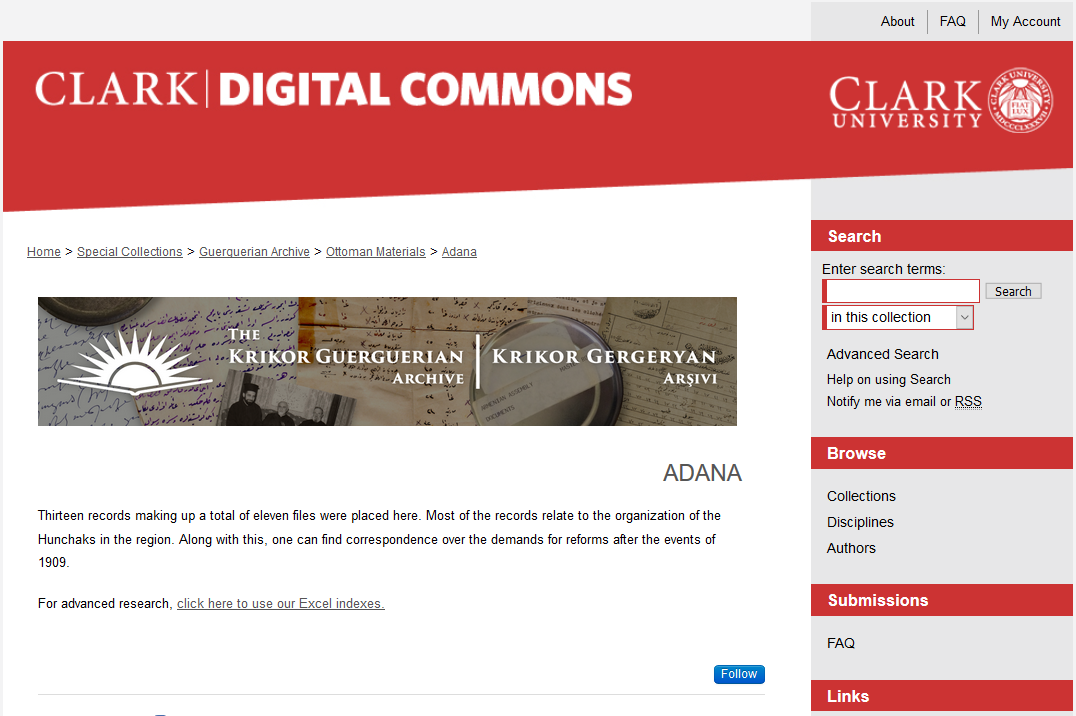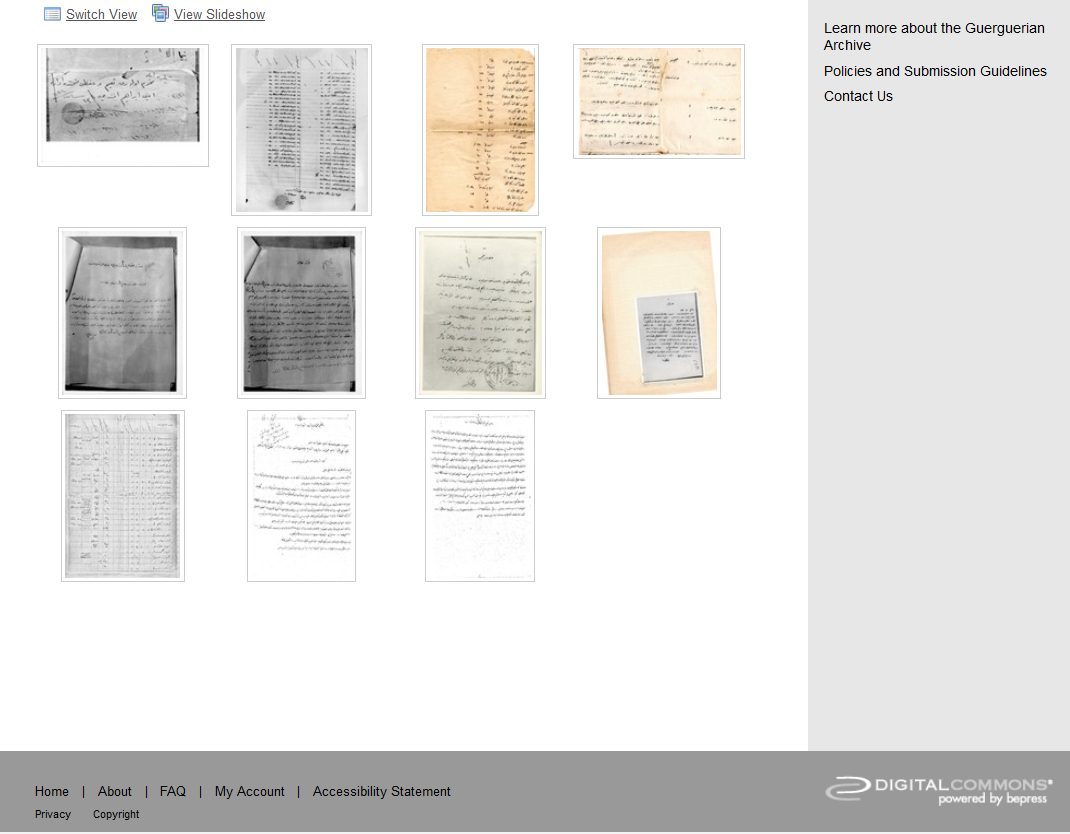Showing the world what sets your institution apart by publishing special collections has proven valuable for many institutional repositories who are raising their global profiles and connecting with local communities who are strategic for their institutional missions.
One recent special collection garnering press from the Boston Globe, Armenian Public Radio, and the Armenian Mirror-Spectator is the Krikor Guerguerian Archive at Clark University. It contains thousands of original Ottoman documents as well as unpublished writings by Dr. Edmond Guerguerian, an Armenian genocide survivor, offering evidence documenting the atrocities of 1915. This archive “was barely utilized” before the library team and Turkish historian Taner Akcam, a professor of Armenian Genocide Studies at Clark University, curated and published them online. “Access to these materials has the potential to change scholarly and political discourse as well as to destroy Turkish denial,” wrote Professor Akcam, stressing that he sees it as his duty to make the ‘’evidence accessible for the world to see.’’ This collection instantly increased traffic to Clark’s Digital Commons repository: currently, there are 21,473 downloads of Clark’s special collections read by 1,230 institutions in 160 countries. Sharing these unique holdings can raise an institution’s profile and drive valuable traffic to your repository, as Cleveland State University’s collection of legal documents regarding the Sam Sheppard Case has shown, with over 148,600 downloads to date for that collection alone.
The Office of Alumni Relations at Langston University was thrilled when Jameka Lewis, Head of Special Collections at Langston University, posted their yearbooks in the IR and reported that “the response was incredible!” Fostering the close relationship between Langston University and the larger community is part of its institutional mission and Digital Commons @ Langston has come to serve as a powerful community hub for the African American community in Oklahoma today. The University of North Dakota is also promoting its institutional history through the John F. Kennedy Digital Archive of materials documenting JFK’s 1963 campus visit, recorded as “one of the most notable events in UND history.”
The Brubeck Jazz collection at University of the Pacific uses flexible display options customized to the diversity of their holdings which span audio and streaming video, music, interviews, related scholarly articles, oral histories, letters, news clippings, and even an unpublished play Brubeck wrote on racial segregation in early American Jazz. The University of Mary Washington Herbarium also uses metatada options that their Consulting Services advisor tailored to this biological collection including Creative Commons Licenses, downloadable specimen images with Pan and Zoom, and specific metadata fields so that this collection partners easily with an online consortium for herbarium across the Southeast United States (SERNEC).
We salute the hard-working librarians and repository managers who have made these collections possible. We are humbled to partner in this endeavor to enrich historical understanding, connect communities, and further global access to such important research.









